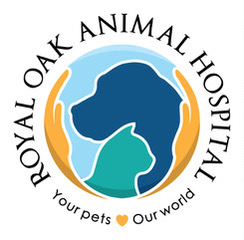Library
-
In the wild, a bird will try to uphold a strong appearance when sick. By the time a pet bird begins to display symptoms of illness, it has likely been sick for several days to weeks. Many things contribute to ill health. This handout provides bird owners with a list of signs that will alert them that their bird is sick.
-
Adding a new kitten to your family is a lot of fun, but it is also a big responsibility. This handout reviews basic kitten care, including vaccinations, internal and external parasites, nutrition, and nail care. It also reviews the importance of early spay/neuter and microchip identification.
-
Congratulations on the addition of a new puppy to your family! This handout provides general care advice for your puppy, including nutrition, play and chewing behavior, housetraining, socialization, nail trimming, and basic first aid.
-
Owning a puppy can be an extremely rewarding experience but it is also a large responsibility that lasts the entire lifetime of the dog. Working with your veterinarian, there are several preventive measures to help keep your puppy safe and healthy as he grows up, including vaccination, parasite treatment and prevention, identification, and spaying or neutering your dog.
-
RAO (previously called chronic obstructive pulmonary disease or COPD) is a relatively common cause of coughing and nasal discharge in stabled horses. In long-standing cases the horse may have difficulty in breathing and its chest and abdomen can be easily seen to move, hence the even older name 'heaves'.
-
Counterconditioning occurs when the pet's reaction (emotional response) to a stimulus is changed from one that is anxious or fearful to one that is positive and enjoyable. To accomplish this, favored rewards should be paired with each exposure to the stimulus.
-
For many cats, a visit to the veterinarian can be stressful. Familiarize your cat with being inside a carrier: make the carrier a cozy and pleasant place to be – it is essential for your cat’s safety. Upon arrival at the veterinary office, try to relax and talk calmly to your cat. Bring delicious, favorite treats and a familiar towel that your cat can snuggle in during her examination.
-
Many dogs experience fear associated with veterinary visits. Once recognized, fear can be reduced with gentle handling techniques and structured behavior modification exercises such as desensitization and counterconditioning. Medications that reduce anxiety can be given before the visit, while full sedation may be needed for some fearful dogs or certain procedures. Over time, dogs can learn to cooperate in their care.
-
This handout provides a brief overview of the most common evidence-based modalities used in veterinary medicine. Pet owners need to discuss the risk of recommended modalities for their specific pet with a trained and certified rehabilitation therapist before starting a rehabilitation program.
-
Remdesivir is an injectable, antiviral medication used to treat feline infectious peritonitis (FIP) in cats. The injection may be painful or cause swelling or inflammation. Its use is still being evaluated and any concerns should be reported to your veterinarian immediately.


